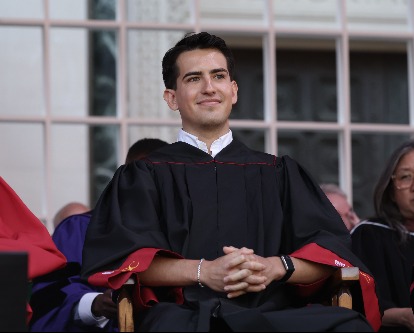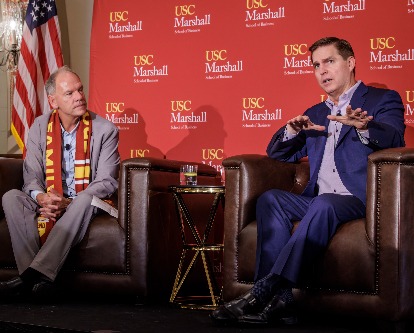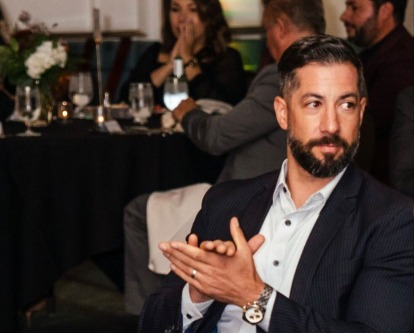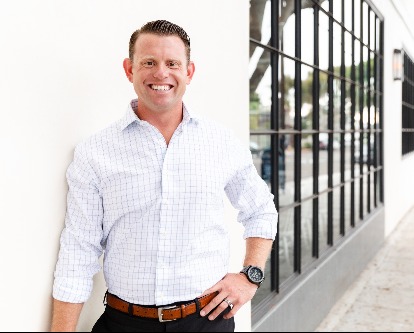
Alicia Yancy remembers feeling the weight of her endeavor one day as she and a colleague strolled through the American Accounting Association’s annual convention. She was working on her Ph.D. in managerial accounting at USC Leventhal, and the AAA was holding its convention that year in nearby Anaheim.
Walking through the convention floor, she caught the eye of an older gentleman. She gasped. It was Dr. Quiester Craig, the longtime professor and dean of the College of Business and Economics at North Carolina A&T State University.
He didn’t know her, but she certainly knew who he was: a legend in the field, an august and highly respected academic leader, and a Black man in a largely white profession. He was looking right at her.
“You keep going,” he told her, smiling. “We’re counting on you.”
That’s when Yancy realized that reaching her goal of getting a Ph.D. in accounting was much more than simply achieving her personal and career goals.
“It was understood that I would be setting an example for others,” she said.
She accepted the challenge. But that’s not surprising to anyone who’s ever met Dr. Alicia Yancy.
From GED to Ph.D.
Dr. Yancy grew up in New Orleans, and early on attended Catholic school, where she excelled academically. When the school shut down, she transferred to an elite private school with the help of her grandmother, who worked as a maid for a woman on the school’s board of directors.
But while it was academically excellent, she was the only Black girl there. “It was a socially miserable time,” she says. “I didn't even realize the taunts were racist.”
Her social life improved when she transferred to public high school. But the academics dropped. She remembers realizing she knew a better way to explain geometry than her math teacher did.
Like a lot of smart kids, she grew bored. She was able to enroll in a few college courses at Dillard University, a historically Black college which allowed high school students to concurrently take college classes and she found she greatly enjoyed the higher level of academics. But meanwhile, her grades in high school suffered.
“High school got in the way,” she recalls.
After exceeding the maximum number of allowable absences, Yancy was told that she would not be able to graduate with her class. Young and impatient to start life, she dropped out and joined the Air Force as a reservist, with an eye toward paying for college.
Even there she stood out for her smarts. In boot camp, the First Sergeant approached her. “Airman Yancy, how is it you scored in the 99th percentile on the ASVAB (Armed Service Vocational Aptitude Battery) and yet you don’t have a high school diploma?”
He helped her sign up to take the high school equivalent credential, the GED.
Now she had an unusual problem. She had a GED, and a strong SAT score. “Carnegie Mellon did not take GEDs,” she says. “But the University of Houston did.” And if she transferred to a military unit in Texas, she could pay in-state tuition.
A Numbers Woman
“It’s not like I set out to become an accountant,” says Yancy, now a professor of accounting at the University of Houston Downtown. But as a first-generation college student without a clear idea of what she wanted to study, she tried on a few hats.
Her first decision was to get into the business school. “I was strong with numbers and I needed to get a good job.” As a business major, she had to take two accounting classes. “I enjoyed them and I did well,” she says. That was settled.
Later on, working at a tech company, she realized she wanted an MBA, and talked her CEO into paying for it. By this time she was also a mother, so she told her boss she’d need to quit to get that MBA. They came to an agreement, and Yancy began her MBA at Rice University.
While there, several of her professors made note of her analytical mind and encouraged her to pursue the Ph.D.
“I went in naively,” she says. “But you have to go in naively, because if you knew what you were in for, you’d never start.”
Of the two top institutions for a doctorate in accounting, her decision to attend Leventhal came down to one main factor: location.
“I had to be able to easily get back to Houston so my daughter could see her father and other members of my family,” she said. “That’s easier to do from LA than it is from Michigan.”
After a little more than 7 years (“Eight on paper.”), Alicia Yancy successfully defended her dissertation and became Dr. Yancy in 2014.
One of her best memories of Leventhal? Returning several years later to hand her daughter her degree when she graduated with a master’s degree in accounting in 2017.

Paying it Forward
Yancy has fully realized what Dr. Craig saw immediately those many years ago when he picked her out of the crowd at the American Accounting Association’s convention. Today she works to inspire others. And she succeeds at that goal.
In February Marshall’s Office of Diversity, Equity, and Inclusion invited her to tell her story in a webinar. Many in attendance were those she’d touched in one way or another.
Althea DeGree, CPA, was one of them. She was an MBA student at Howard University and had been invited to learn more about the Ph.D. Project, an initiative aimed at bringing more underrepresented minority business students into the Ph.D. pipeline. Yancy was at the event as one of the Project’s “All-stars.” The two hit it off immediately.
Yancy encouraged her years later when DeGree sat for the grueling CPA exam. “When I saw that she was giving a talk about her journey, I cleared my calendar so I could attend and again be inspired,” said DeGree, now a CPA for the federal government.
Today Yancy goes out of her way to encourage under-represented minority students to take a look at accounting. Under her watch, her campus chapter of the National Association of Black Accountants has grown.
“My passion is really teaching the first accounting course a student gets here,” she says. “I love giving students a good foundation. It’s really important to help them connect the dots.”




